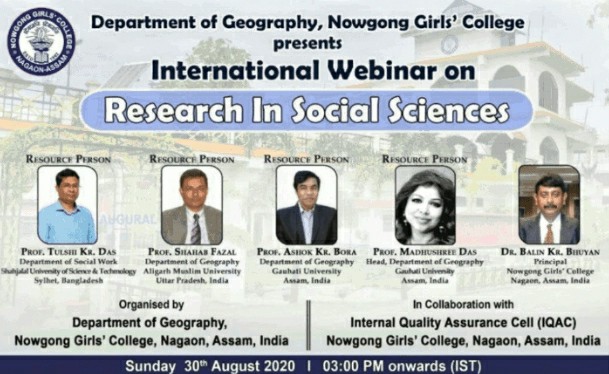IISF Webinar highlights societal contribution of Oceanographic Research

Press Information Bureau, Western Region and Regional Outreach Bureau organised a webinar on ‘Oceanographic Research in India’ in the run-up towards India International Science Festival (IISF). IISF 2020 is celebrated every year to promote Science and Technology.
Prof Sunil Kumar Singh, Director, Council & Scientific Industrial Research-National Institute of Oceanography spoke about Oceanographic Researches being carried out in the Indian Ocean.
While talking about the formation of ocean he said that, “water was there around 4.4 billion years ago and ocean was formed 2.8 billion years ago. The original signature of the ocean has almost vanished. We don’t have any sediment or fossil which is reserved in the ocean, because of weathering.” He spoke about how the various types of researches being carried out in the ocean are useful to the society.
He spoke about how initially Iron (Fe) concentration in the Ocean was very high and depleted over years. While talking about the adverse effects of the weather he told that, “In the beginning, ocean was very acidic when carbon dioxide was high and PH level was very low. Today again there is a fear of ocean becoming acidic due to increase in CO2.”
Shri Sunil Kumar Singh mentioned how Indian Ocean is a unique basin which is bounded by land in the low latitude area unlike the Pacific and the Atlantic Ocean. “One of the major discoveries of last decade was the presence of High Nutrient Low Chlorophyll region in Ocean. Low productivity was a result of deficiency of key elements like – Iron”, he added.
He explained about various research methodologies being adopted in Indian Ocean, to remove the impact of ocean contamination and to analyze Iron (Fe) concentration in the Ocean. He also spoke about isotopic composition which can be utilised in studying the evolution of oxygen .”Ocean is very important for non-living resources. Many researches have taken place in the Indian Ocean. We have found that huge amount of resource is present here. We have exclusive rights over 75,000 Square Kilometres with reserves of minerals containing > 100 MMT of strategic metals in the Indian Ocean. National Institute of Oceanography, Chennai is developing a technology to extract these deep sea mines,” he added.
Shri. Sunil Kumar Singh also told that such webinars and discussions are very much required to bring the science out of the lab. This will encourage the use of science for the societal welfare and also develop scientific temper among students and general public and also make the country self-reliant
The webinar had a Q&A session. Manager, Regional Outreach Bureau, Pune, Dr. J. V. Panpatil, delivered Vote of Thanks.
Also See:
- Balbir Sidhu Hands Over Appointment Letters To 50 Staff Nurses
- Delegation of Shimla Rural Assembly Constituency call on CM






